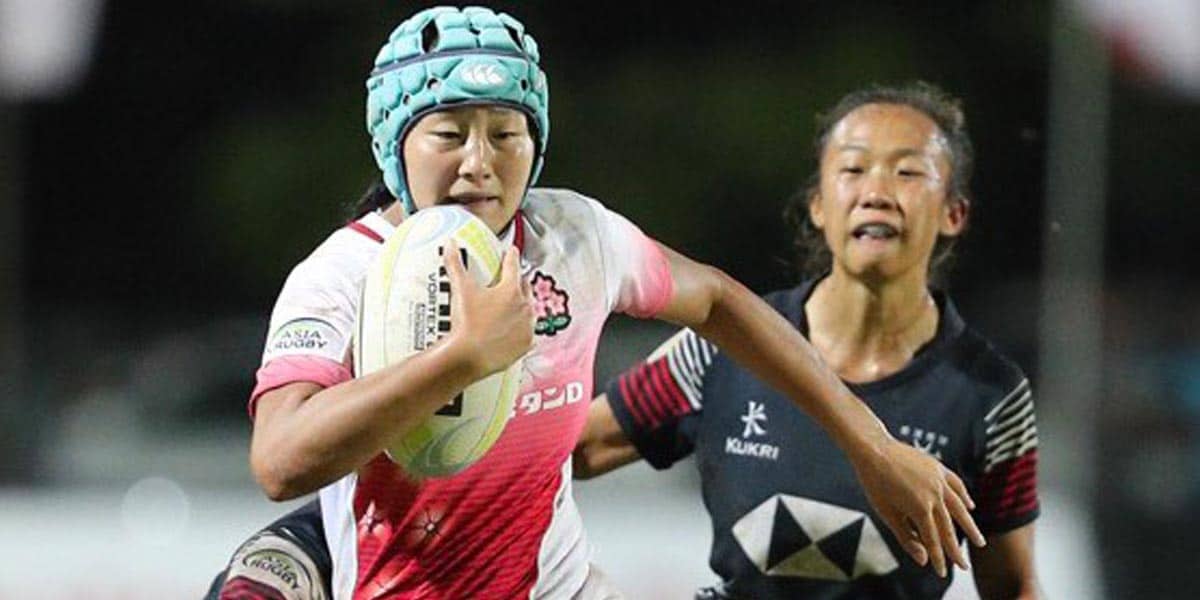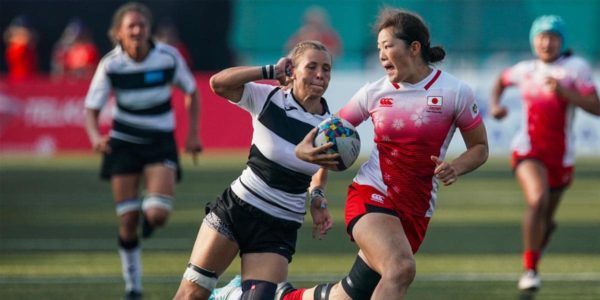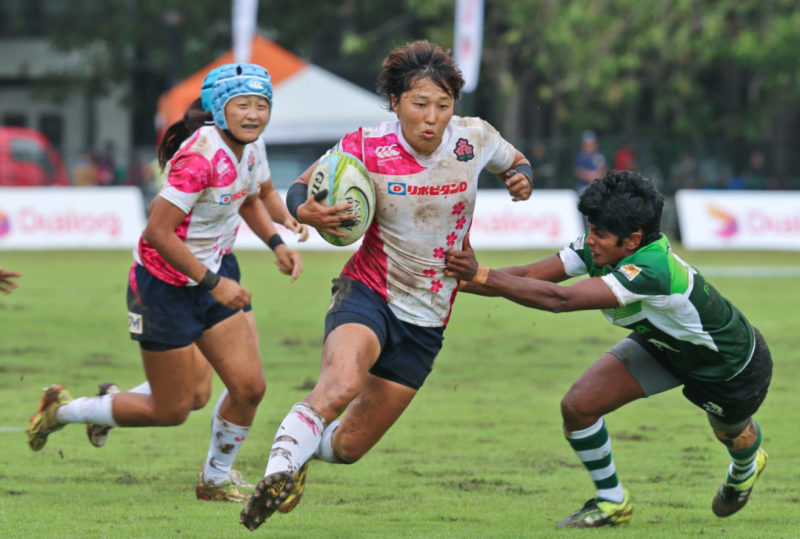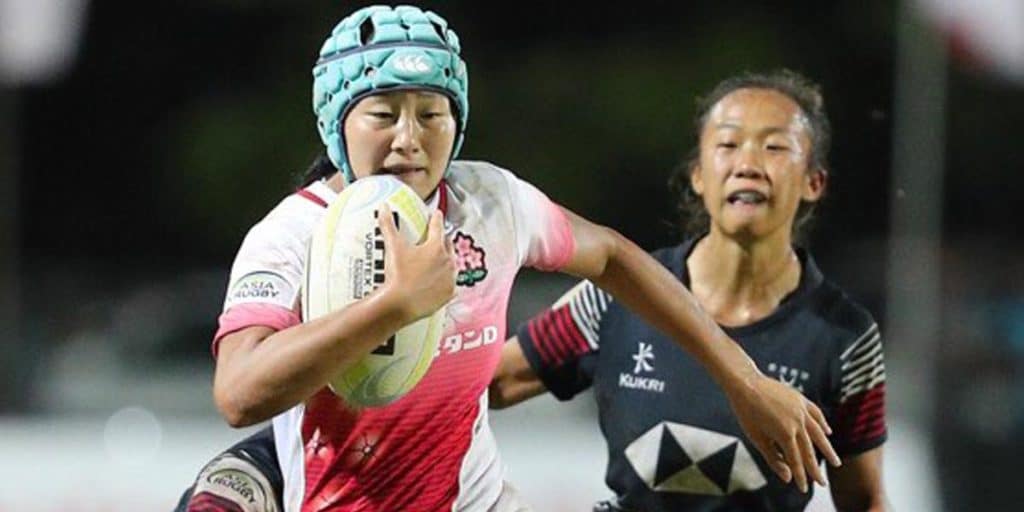Winning a medal in front of their home crowd is a goal for all Japanese athletes at the Tokyo Olympics. But Japan men’s sevens head coach, Kensuke Iwabuchi, also hopes to use the Games to establish a sevens culture in the country.
Today marks one year until the men’s sevens tournament kicks off at Tokyo 2020, which was postponed due to the COVID-19 pandemic. Three days later, on 29 July, 2021, the women’s tournament is also scheduled to get under way at Tokyo Stadium.
Related article : Tokyo 2020 Olympic Games rugby sevens schedule confirmed
Grasping the opportunity to play sevens in front of a home crowd, men’s head coach Iwabuchi, who also serves as chairman of the Japan Rugby Football Union (JRFU), is hoping to root the shortened format’s culture in a nation where rugby has grown primarily as a 15-a-side game.
“The Olympics is the objective for our team. I’d like to play with our players and win a medal to achieve our goal,” Iwabuchi said.
Japan’s men finished fourth at Rio 2016, a remarkable result. Iwabuchi, as the national team general manager, was with the team in Brazil and remembers the frustration of narrowly missing out on a medal.
Iwabuchi points out the significance of strengthening the national teams in both the mid and long-term.
“The Olympics will not end in Tokyo but continue after that,” he said. “We as JRFU need to improve the environment for sevens rugby with the impact of the Tokyo Olympics, so that we can have more players who choose to play sevens and add the sevens culture to Japanese rugby, whose main stream is based on 15-a-side rugby culture.”
As Japanese rugby has developed around the 15-a-side game, the environments in which the players work are based on the 15s system. For example, although there are some players who focus on the shorter format, all sevens players belong to a Japan Top League team and attend national team activities with the cooperation of their team.
Without that cooperation from Top League and college teams, those players wouldn’t be available. Iwabuchi is thankful to them but says “we have to improve the situation” so that the players do not need to make tough decisions at their club.
As we celebrate #OlympicDay we also celebrate @jrfumedia's women who have qualified for @tokyo2020 as hosts! #StayActive #AsiaRugby pic.twitter.com/ig7l97ao3o
— Asia Rugby (@asiarugby) June 23, 2020
A SHOWCASE FOR SEVENS
Thanks to Rugby World Cup 2019, the perception of rugby in the domestic market has dramatically changed. Japan’s Brave Blossoms reached the quarter-finals for the first time and their performances attracted a great number of so-called “Niwaka” new fans. The tournament was attended by more than 1.7 million people, while the hosts’ match against Scotland hit a peak TV rating of 53.7 per cent.
That momentum was carried into the 2019-20 Top League season, which kicked off in January and had an average attendance of 11,366 – double the 5,153 average for the 2018-2019 season – before it was cancelled after six rounds due to the COVID-19 pandemic. The highest attendance came in Round 2 at Toyota Stadium, when Toyota’s match against Panasonic was watched by a league-record crowd of 37,050 people.
The change was also seen in the number of players registered with the JRFU. As of March 2020, over 2,800 more players aged between six and 12 years old took up the game compared to the same month in 2019. They are regarded as those who started playing the game after RWC 2019.
“Having had Rugby World Cup 2019 here has indeed provided a big impact, and has brought an opportunity for us to share rugby itself and the experience of enjoying the game together,” said Iwabuchi, admitting the power of Rugby World Cup. Having an opportunity to show many people the attractiveness of sevens rugby would play an important role in embedding the game in Japanese society.
The HSBC World Rugby Sevens Series has been a major event for Japan men to take part in and improve, although it often repeats relegation and promotion. That means there are not many occasions for Japanese fans to see national sevens players in action. There is no domestic series for men either.
However, there have been some domestic tournaments that have helped raise the standard of Japanese players.
Launched in 2014, the Asics Cup High School Sevens Rugby tournament helped Japan men’s sevens youth team to win the bronze medal at the Youth Olympics in 2018. The country’s men’s and women’s sevens teams also won the gold medal at the Universiade Games in Italy last year. Japan’s women’s sevens team — Sakura Sevens — has won the last five Asian Rugby Women’s Sevens Series, following the inaugural Taiyo Seimei Women’s Sevens Series in 2014.
“Our national team players have developed their game while competing through a domestic tournament. I have no doubt about that. It is important to have a tournament that can be a target for the players.
“With the Tokyo Olympics arriving, we’d like to win the support from various teams and improve the environment for sevens rugby. If we cannot do that at this occasion, it will be very difficult for us to achieve something big after the Tokyo Summer Games,” Iwabuchi said.
INCREASING POPULARITY OF WOMEN’S SEVENS
Japan women’s sevens head coach Hitoshi Inada is also hoping that the Tokyo Olympics will help better establish women’s sevens in the country.
“We had a good moment with Rugby World Cup in our country last year, which produced many children wishing to become a rugby player, but not yet with women’s rugby,” Inada pointed out.
Some 22,000 players aged between six and 12 years old have been registered at JRFU as of March, and 10 per cent of those are girls.
Inada said: “With the performance of our Sakura Sevens at the Tokyo Olympics, we are hoping to make more girls feel ‘women’s rugby is stylish’ or ‘I want to play rugby’. The Tokyo Olympics has a significant meaning for us to establish women’s rugby.
“The Olympics is the competition that gathers those who are aiming to achieve the best. From rugby, only sevens players can join them, and 12 players per team can play in the women’s competition. I believe that we can make women’s rugby spread and increase the value by producing a best result.”
Inada believes that sevens rugby itself is attractive and includes fun and exciting features that are different from the 15-a-side game. “I hope the Tokyo Olympics will be the opportunity for many people to find the sevens games close and make it spread around.”
Since the end of June, Japan men’s sevens started training with a small group of the Olympic candidates and has moved to hold a team activity from 25 July. Japan women’s sevens is scheduled to start its activities gradually from August.





